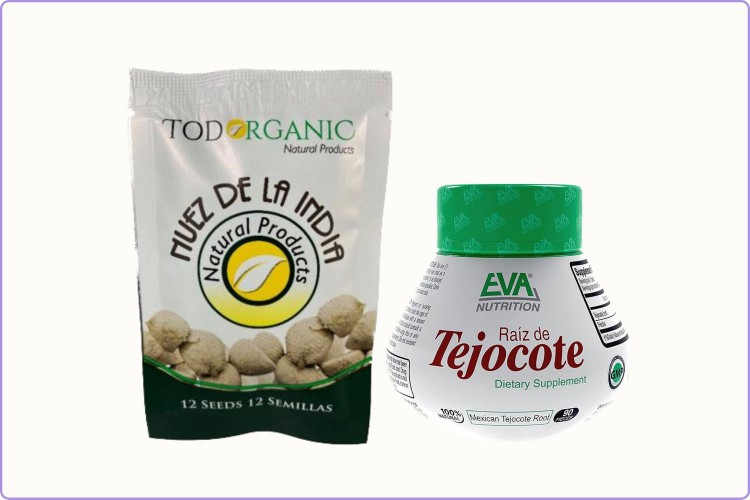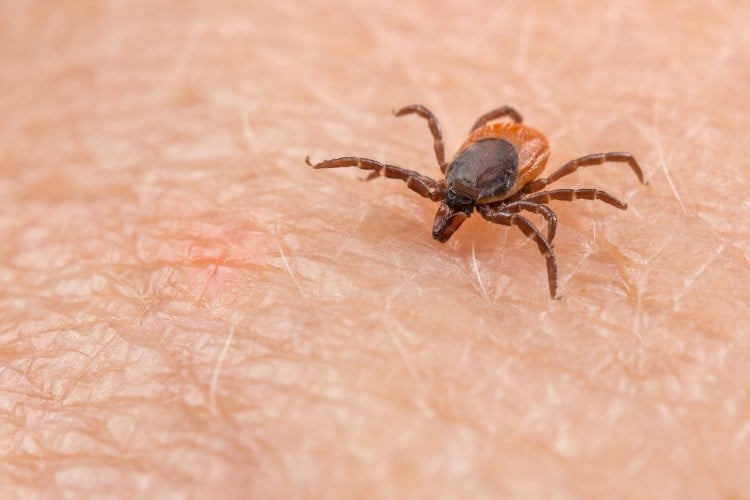CDC, FDA Warn of Toxic Plant in Weight Loss Supplements
- Both the CDC and FDA have recently warned consumers that certain mislabeled weight loss supplements may be contain yellow oleander, a poisonous plant.
- The agencies specifically named tecojote root pills and "Nuez de la India" pills as possibly containing the dangerous plant.
- These mislabeled supplements may be common, and are often sold at popular online retailers such as Amazon or eBay.

FDA/Amazon
Some weight loss supplements sold online may contain yellow oleander, a toxic plant, major U.S. health agencies are warning.
The Centers for Disease Control and Prevention (CDC) on Friday issued a case report of a woman whose child became ill after accidentally ingesting a weight loss pill that was said to contain tejocote root, but actually contained toxic yellow oleander.
In a report updated on September 8, the Food and Drug Administration (FDA) similarly warned consumers that products labeled with “Nuez de la India,” “India Nuts for Weight Loss,” “slimming seeds,” or other similar names may also contain the poisonous plant.
Yellow oleander is a plant native to Mexico and Central America, and some say in small amounts it act as a natural method of weight loss. However, all parts of the plant, including the flowers, bark, and seeds, are poisonous.
“This is concerning because these supplements contain a highly toxic substance and are readily available from multiple retailers,” the CDC report authors wrote. “Future prevention efforts need to include reporting products such as these to FDA and alerting retailers who might be unknowingly selling these hazardous products.”
Mislabeled Supplements Can Lead to Dangerous Outcomes
In the CDC’s Morbidity and Mortality Weekly Report, the authors described the case of a 23-month old child who, on September 8, was admitted to the emergency room after eating an Eva Nutrition Mexican Tejocote Root pill.
The child recovered, but experienced nausea and vomiting, and had a dangerously low heart rate and blood pressure after taking the supplement.
The FDA’s report was based on the case of one Maryland resident who was hospitalized after consuming a “Nuez de la India” product.
“The person had significant potential for a bad outcome with the degree of high potassium they had, and with the [electrocardiogram] findings that they had,” Josh King, MD, medical director of the Maryland Poison Center and associate professor of medicine and pharmacy at the University of Maryland, told Health. King was one of the physicians who reported this case to the Maryland Department of Health, which later contacted the FDA.
These severe cardiac symptoms seen in both the CDC and FDA cases are typical of yellow oleander poisoning, King explained.
“[Yellow oleander] contains something called cardiac glycosides,” he said. “Cardiac glycosides are compounds that will make the heart beat slowly, but also have an increased risk of arrhythmias, bad heart rhythms.”
These cardiac issues—in addition to other neurologic and gastrointestinal symptoms, such as nausea, dizziness, abdominal pain, and diarrhea—can make the plant deadly in some cases.
It’s especially risky when taken in larger doses, King added. The Maryland patient, unable to read the instructions, consumed the package of 12 yellow oleander seeds when they were supposed to take a quarter of one, he said.
Besides yellow oleander being so toxic, the situation is made all the more dangerous by the fact that people don’t even know they’re taking it.
In the case outlined in the CDC report, the patient’s mother had purchased tejocote root pills, marketed for weight loss, and the manufacturers had put yellow oleander in the product instead.
The weight loss “Nuez de la India” products flagged by the FDA are also supposed to contain another plant, called Aleurites moluccanus, or candlenut tree seed. But again, a number of products contain yellow oleander instead, the agency said.
However, it’s worth noting that even if these products had contained the plants they were supposed to, people still could’ve become ill. The FDA calls candlenut seeds non-toxic, however, other reports say it can cause vomiting, diarrhea, and gastrointestinal pain. Tejocote root products have been linked to low numbers of platelets and blood cells.
Berberine Dubbed 'Nature's Ozempic' on Social Media—But Is the Supplement Safe?
Avoiding Supplements That May Contain Toxic Plants
Despite the fact that yellow oleander can be quite dangerous, some research indicates that it may be showing up in supplements regularly.
The FDA named five different brands of “Nuez de la India” that contained yellow oleander, and warned that these products are available on third-party platforms such as Amazon, Walmart, and eBay.
When investigating tejocote root supplements, the CDC also raised alarm bells about how common mislabeling appears to be. Researchers investigated 10 different tejocote root supplements in December 2022, and found that nine out of the 10 contained yellow oleander instead of tejocote root.
Researchers in Korea published similar findings in 2021—they investigated samples of Alipotec, a brand name of tejocote root, and also found that the samples contained yellow oleander.
The FDA does regulate supplements like these, just not as strictly as it does medications. Supplements cannot be “adulterated or misbranded,” but if they are, the agency can only take action against the manufacturers after the product reaches the market.
“Supplements are not regulated like drugs, or even really most foods,” said King. “They have very loose labeling requirements and in general, we strongly recommend if you’re going to get supplements, make sure they’re from a reliable source that has a history of quality control.”
In this case, the FDA said it’s continuing its investigation into these mislabeled “Nuez de la India” supplements, and will update the advisory if it uncovers other issues.
As of early September, two companies have issued voluntary recalls of their “Nuez de la India” capsule and seed products, respectively. Consumers are urged not to consume Nut Diet Max brand supplements, or those made by the company Todorganic.
Some supplements can be necessary for people’s health, however, sometimes they do contain the wrong ingredients, wrong dosage, or have some sort of other issue, King warned.
“When it doubt, it may be safer not to take it,” he added.
People should speak to their healthcare providers if they’re interested in adding supplements to their diet, said King.
When it comes to weight loss in particular, the FDA has approved Wegovy and a handful of other drugs if people are interested in losing weight via medication. However, according to the CDC, the best way to achieve a healthy weight is to develop a lifestyle founded on healthy eating, regular exercise, and stress management.
14 Vitamins and Supplements for Weight Loss That May Not Work








